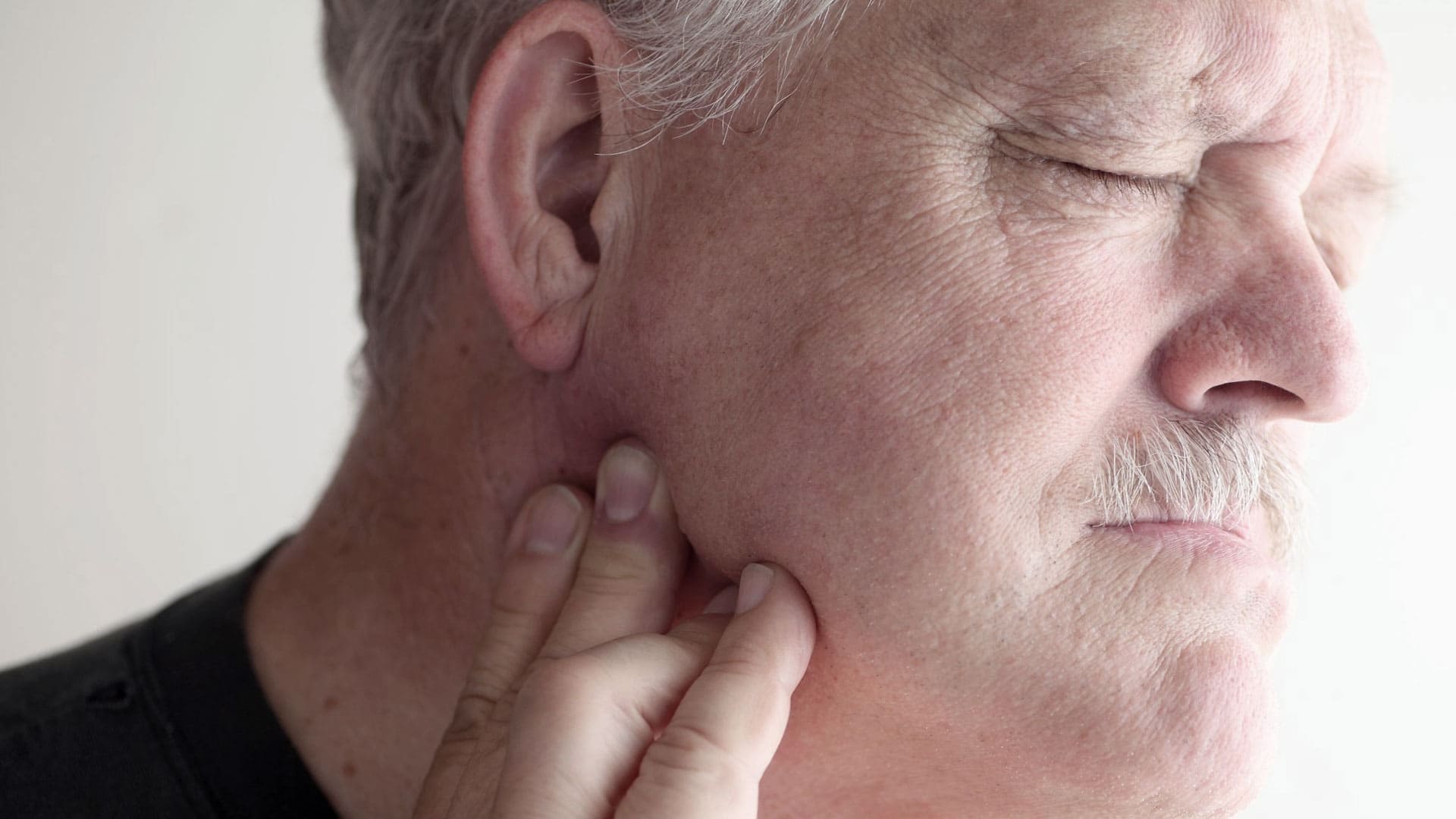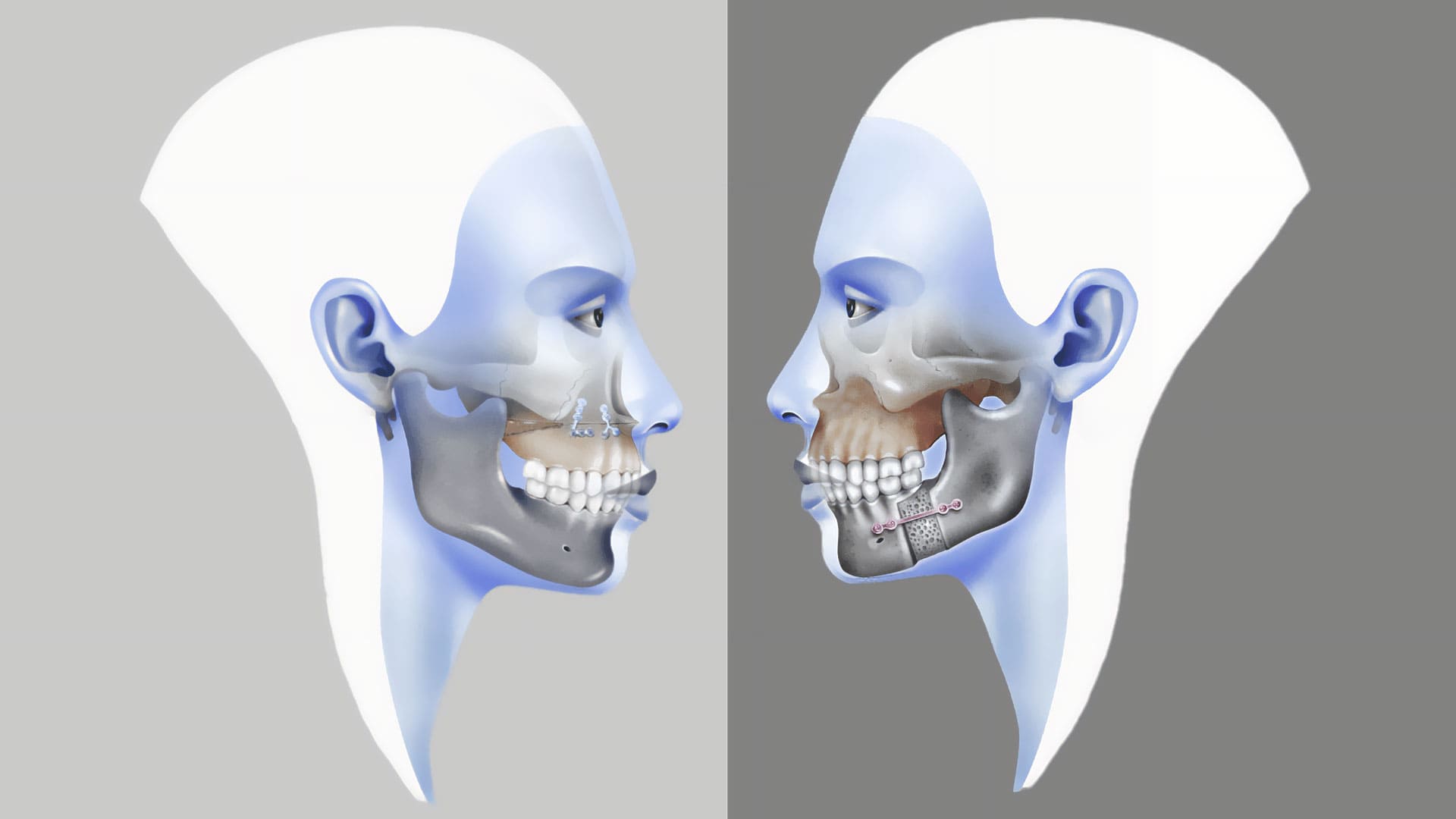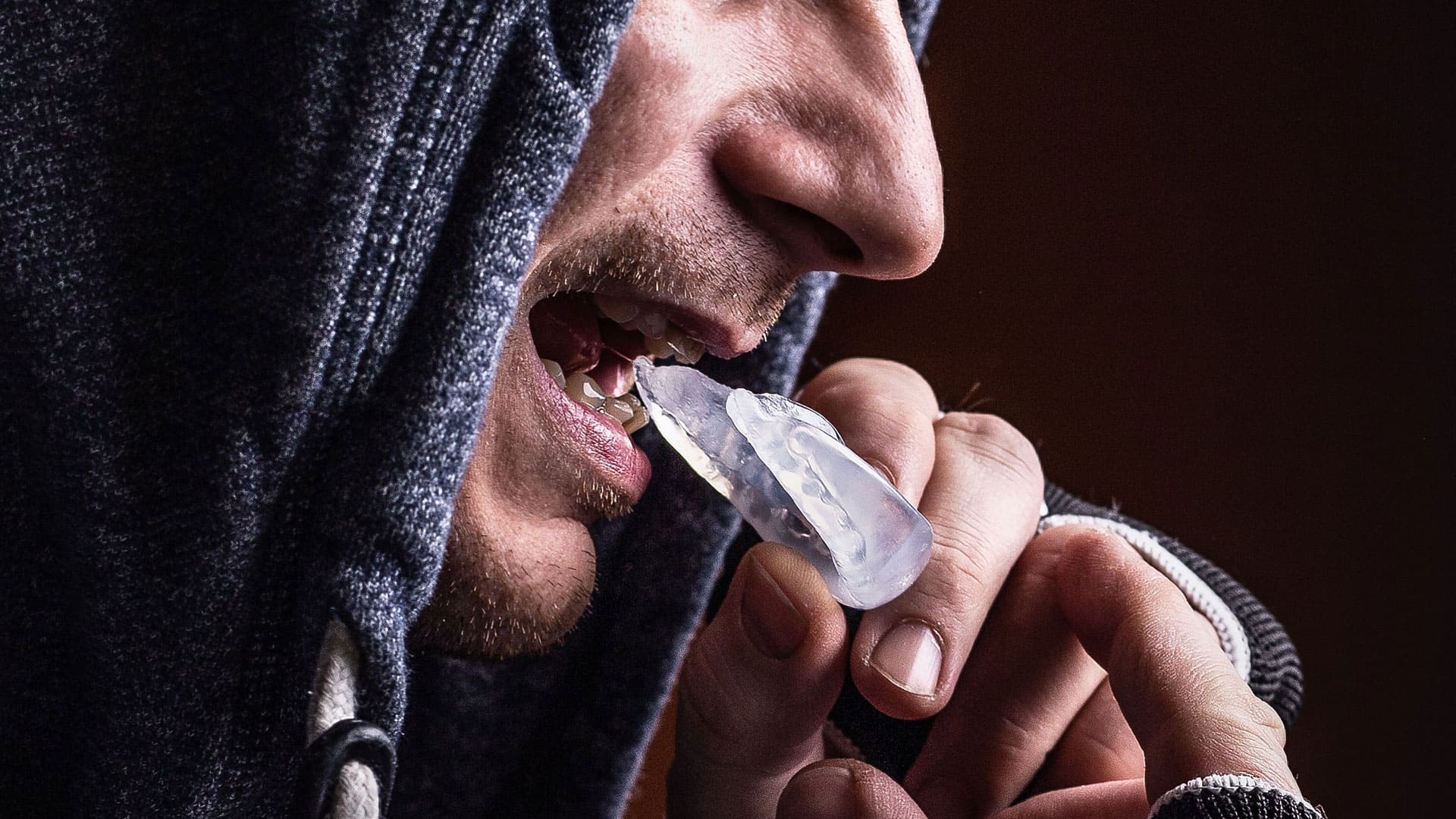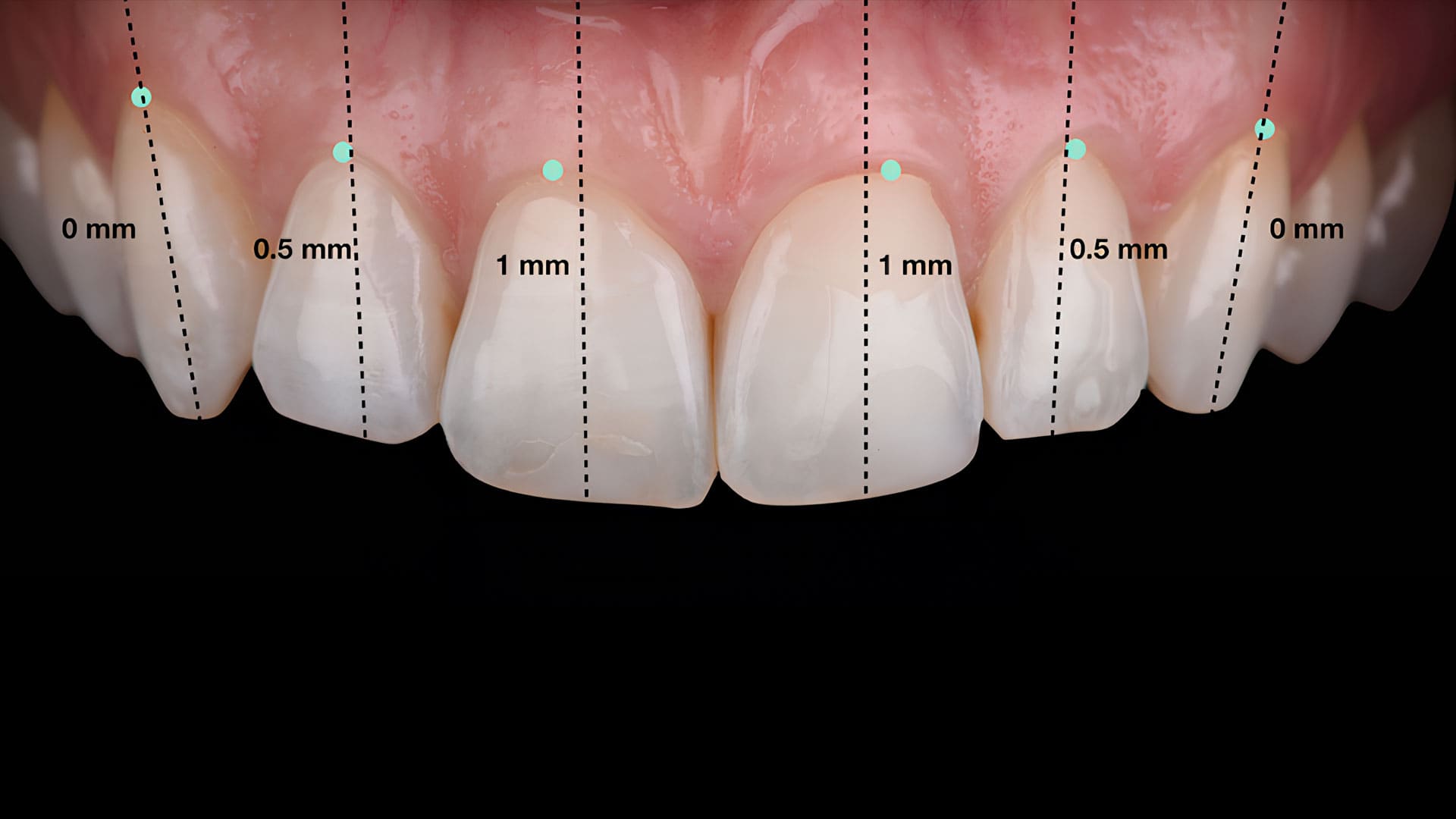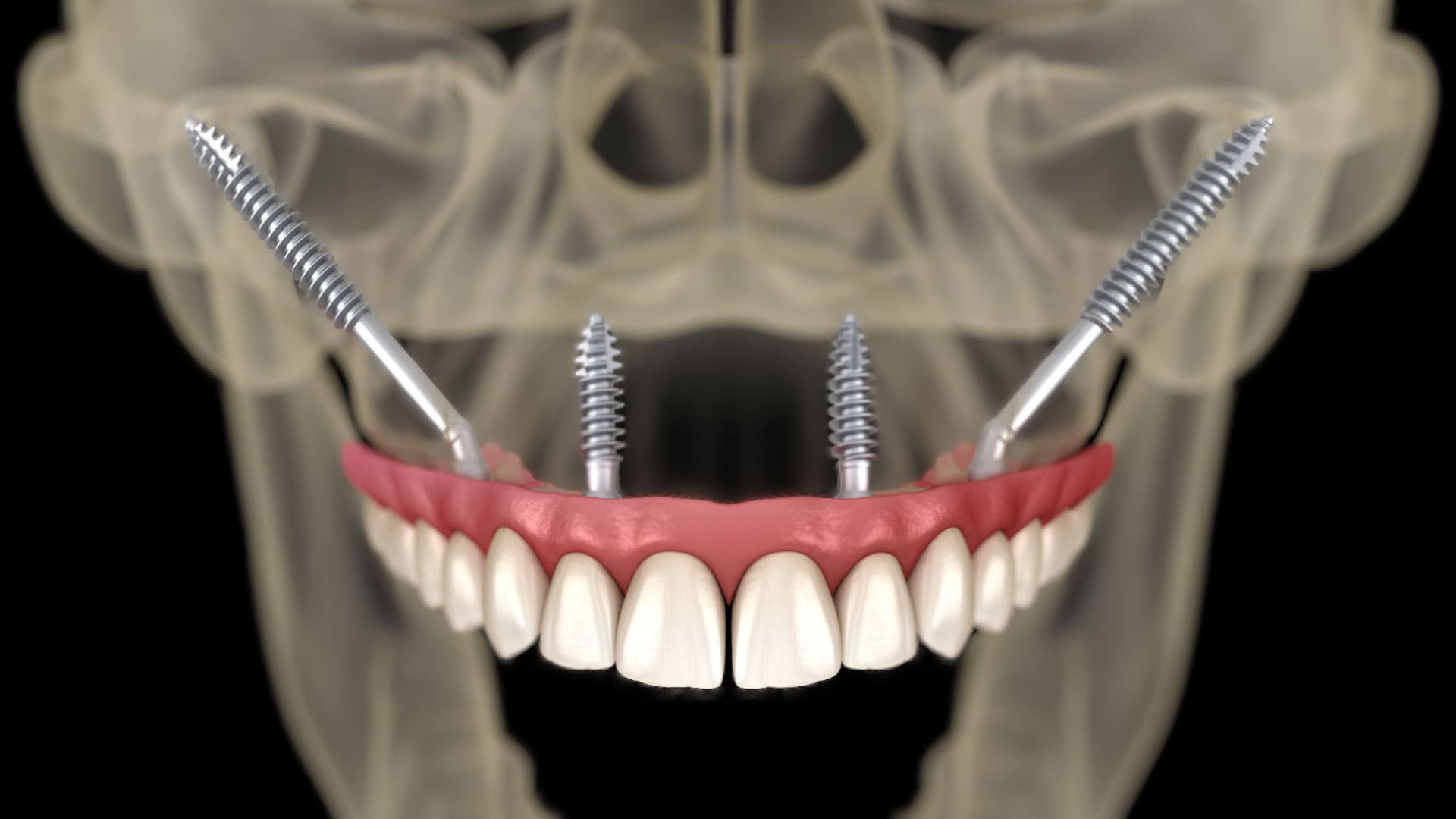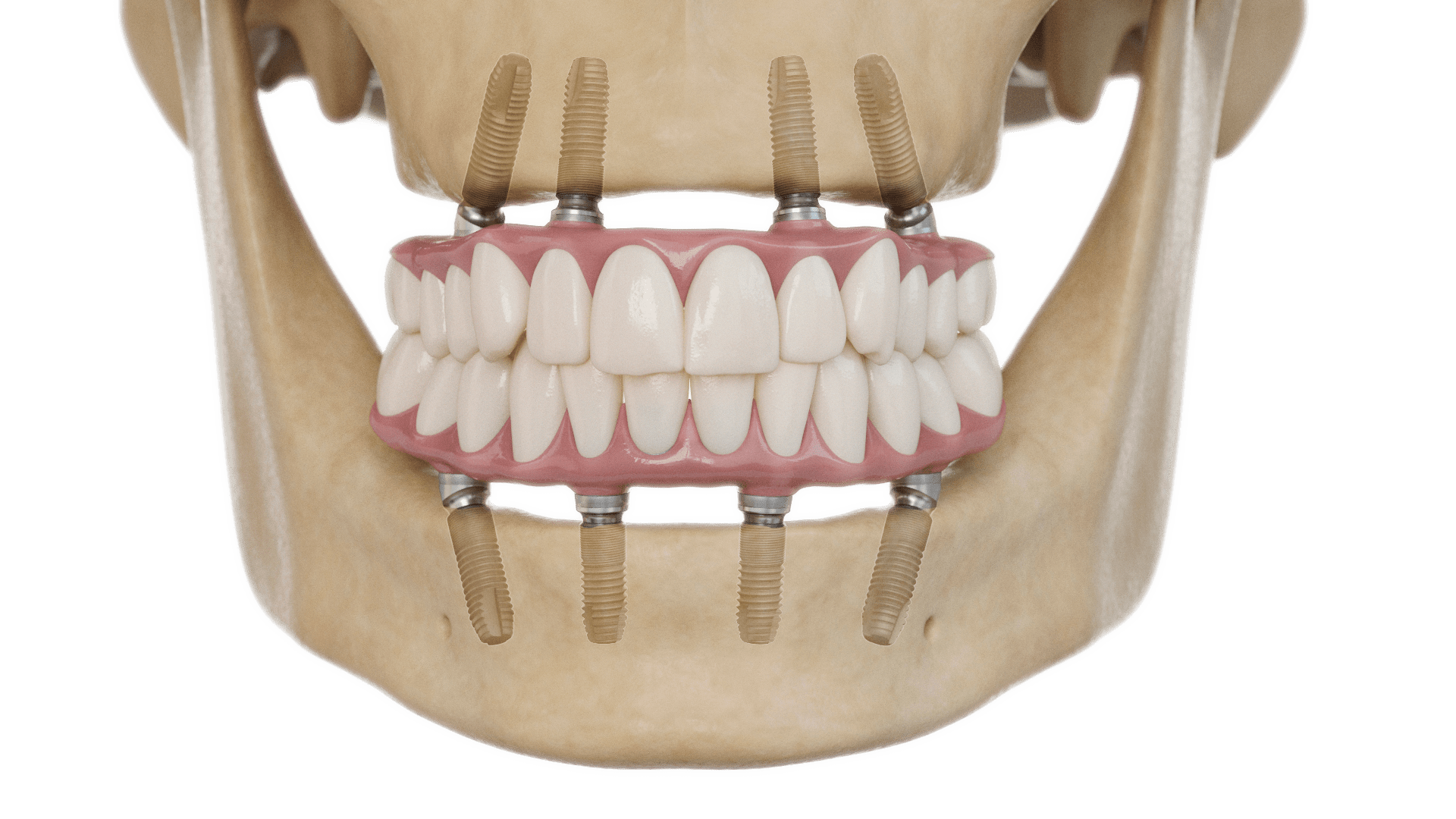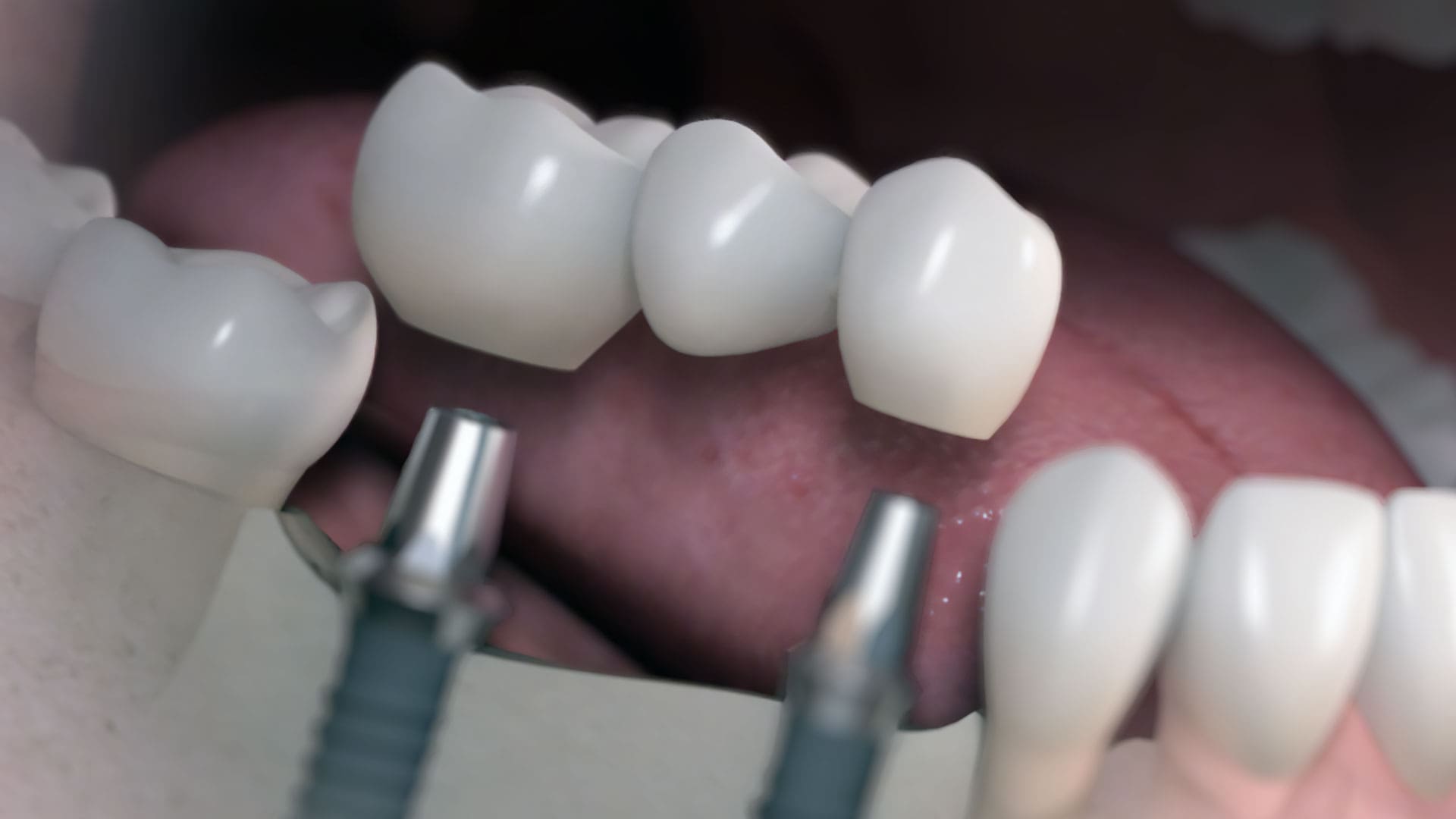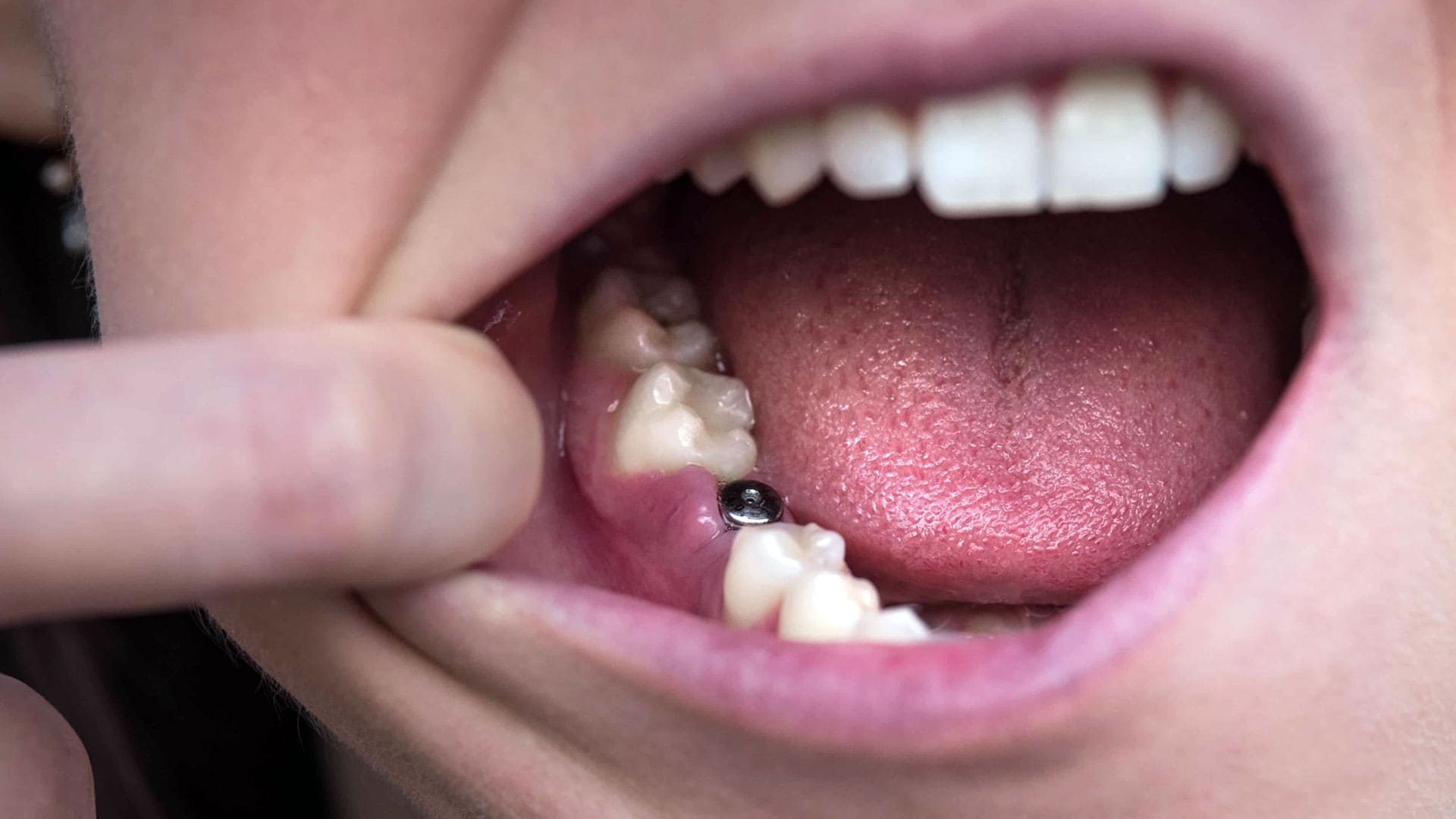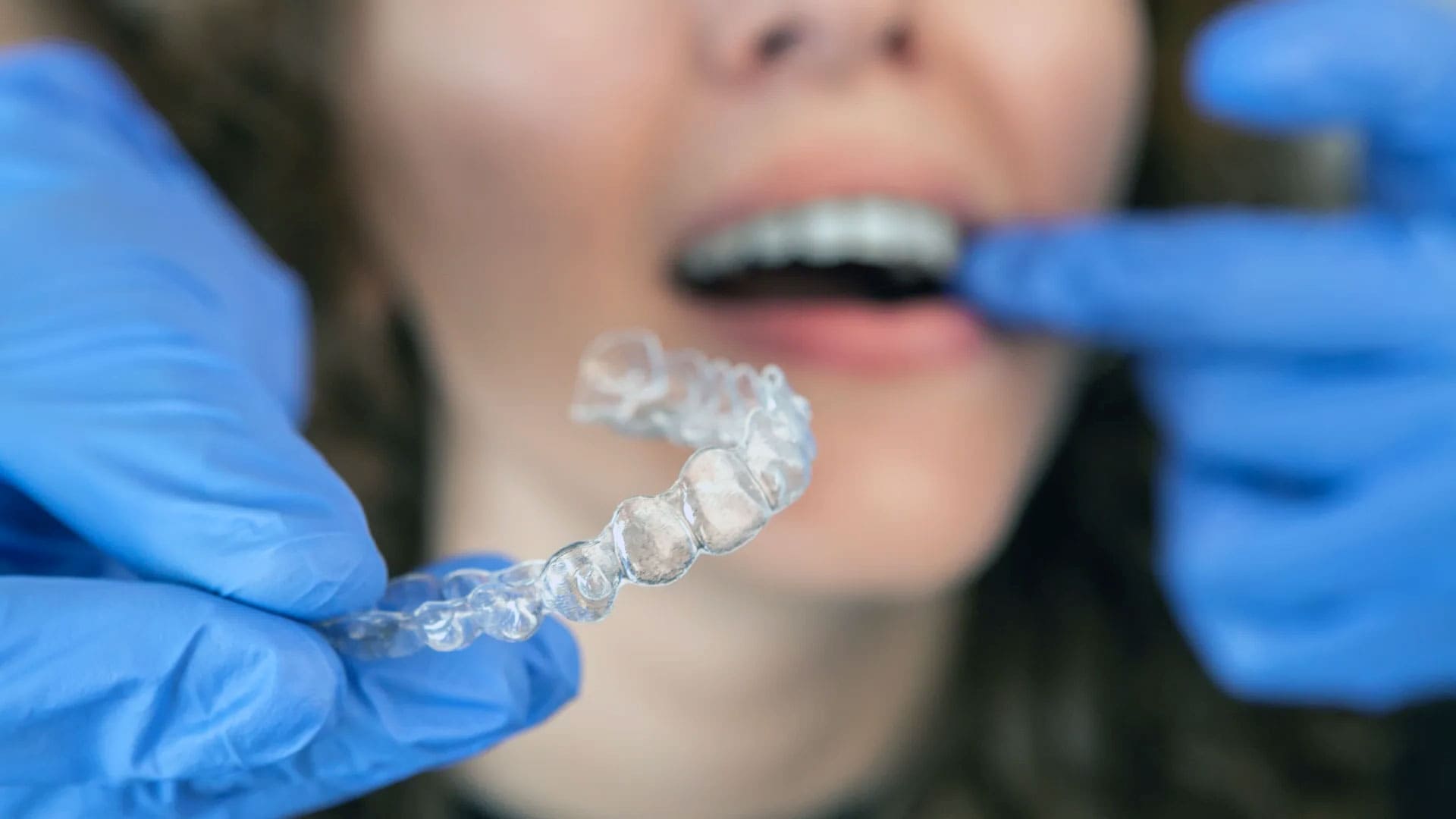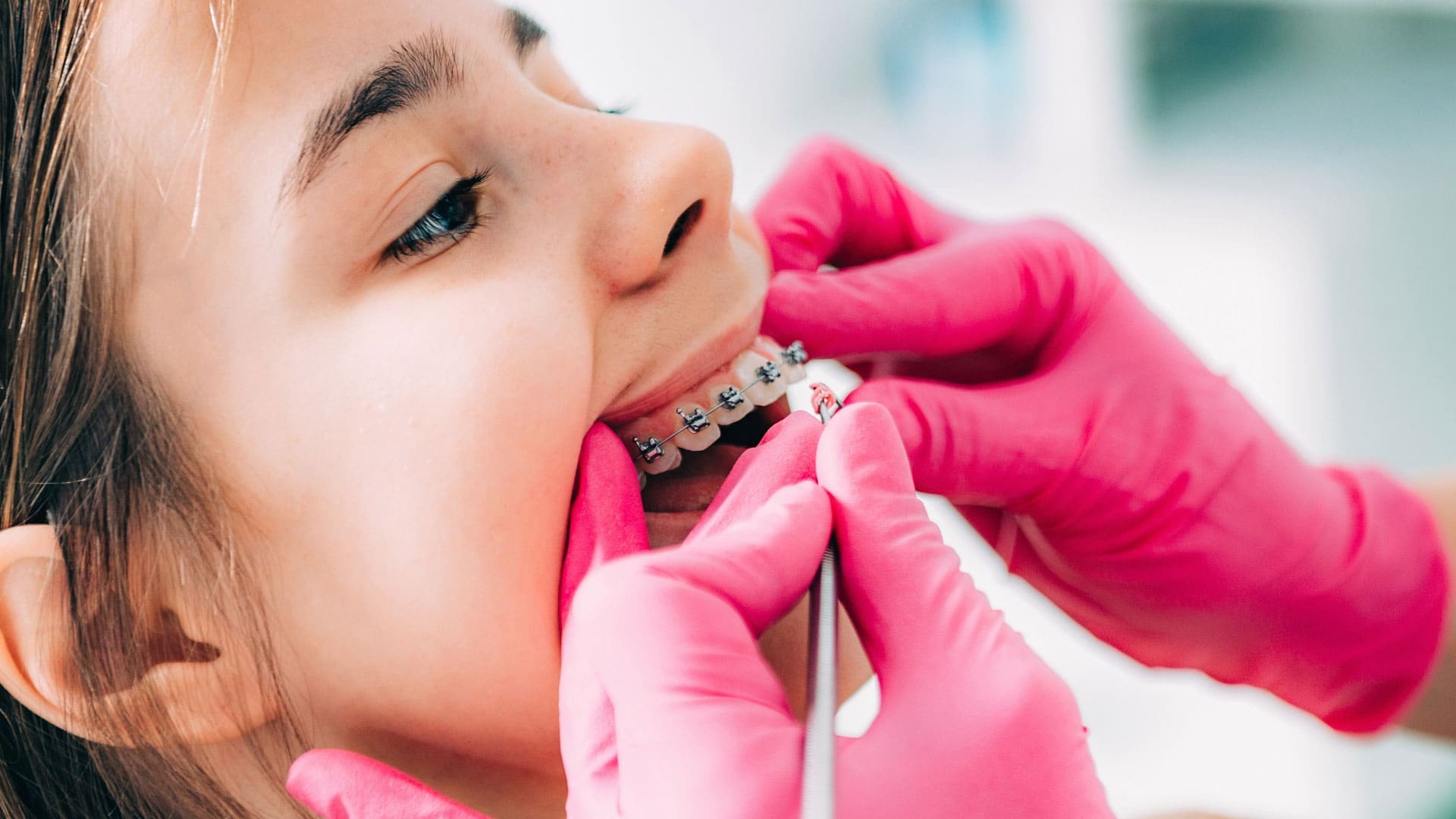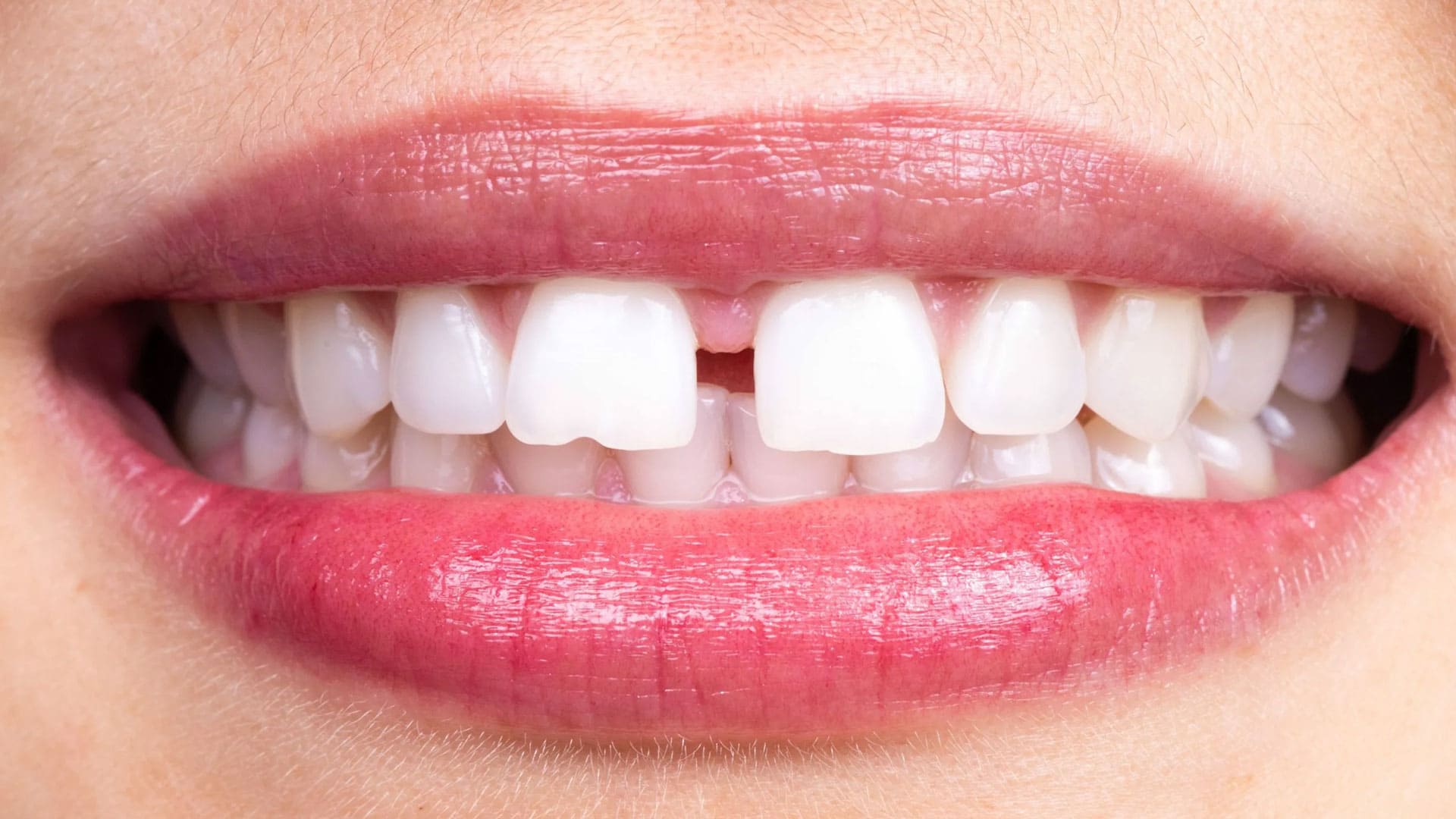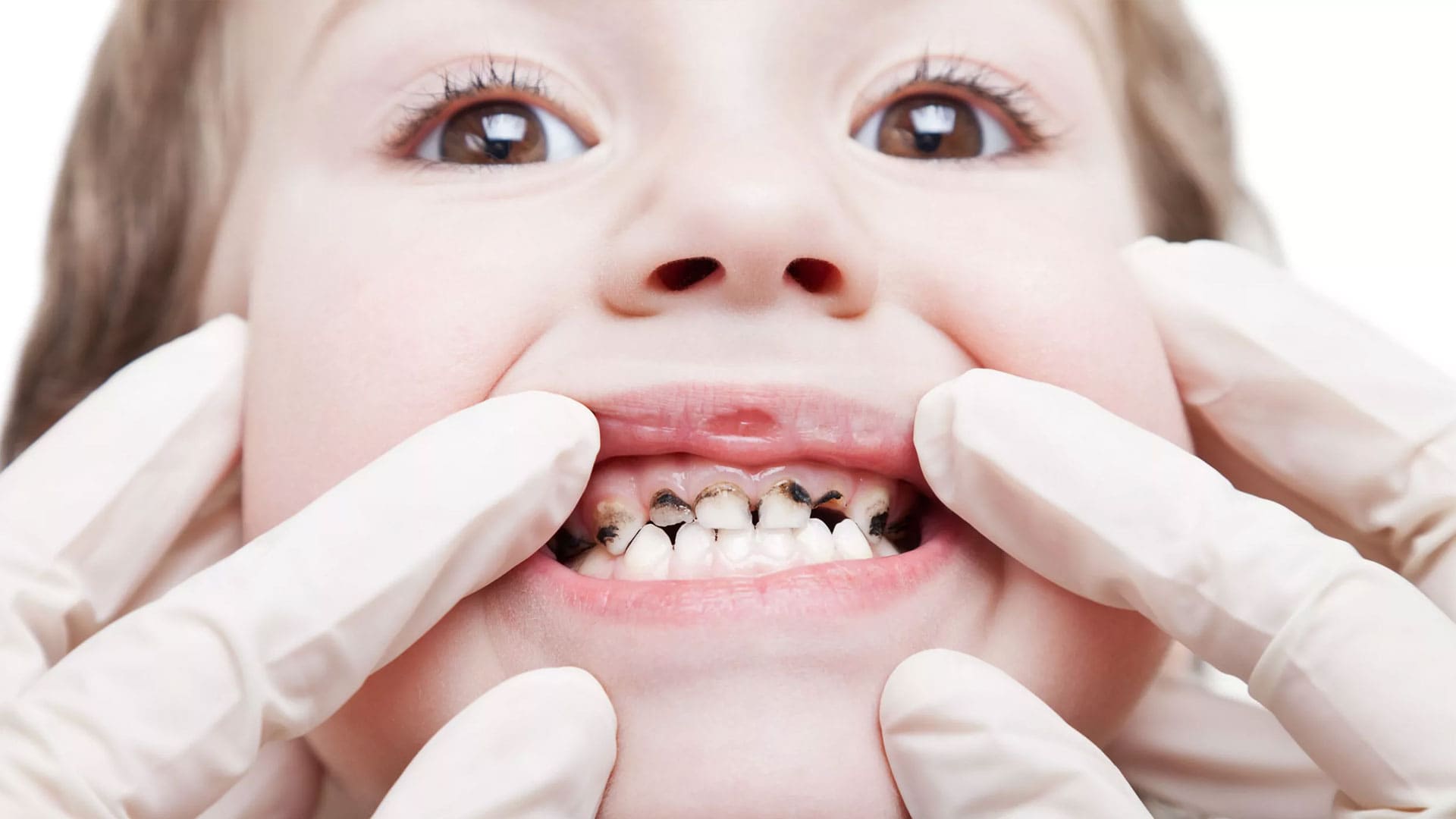
How Does Tooth Decay Occur?
How does tooth decay occur and how to prevent it?
Tooth decay is the root cause of a number of oral and dental health problems experienced by everyone from children to adults. Tooth decay is more common in people who do not take proper oral care.
You may have brushed your teeth regularly, but you may not have cleaned the debris between your teeth sufficiently. Dental residues that are not cleaned well enough between your teeth and in your mouth lead to bacterial formation over time. This causes both bad odor and decay in your mouth. In this case, you should consult your doctor for tooth decay treatment without delay.
What is Tooth Decay?
The definition of tooth decay is the accumulation of bacteria in the mouth of individuals who do not provide adequate care, and the acidification of these bacteria and the beginning of damage to the tooth structure. In other words, when you do not brush your teeth, food residues in your mouth lead to the formation of bacteria. This causes plaque called tartar to form on your teeth first. Then you may notice that your teeth start to darken.
Dental caries, which appear as black spots on the outside, should be removed as soon as possible. This is not only because of the bad appearance of the teeth. Toothache caused by tooth decay greatly negatively affects your daily life. When neglected, tooth decay not only causes pain but can also lead to various health problems.
The bacteria that accumulate in the oral cavity and on the teeth erode the healthy outer surface of the tooth and walk inward, causing caries. Tooth decay refers to a process. When the decay is very recent, you may not notice it. However, if you brush your teeth regularly, you may notice decay and other oral problems more quickly. If you have black spots on your teeth or blackening of a certain part of the tooth, you should consult your dentist without delay.
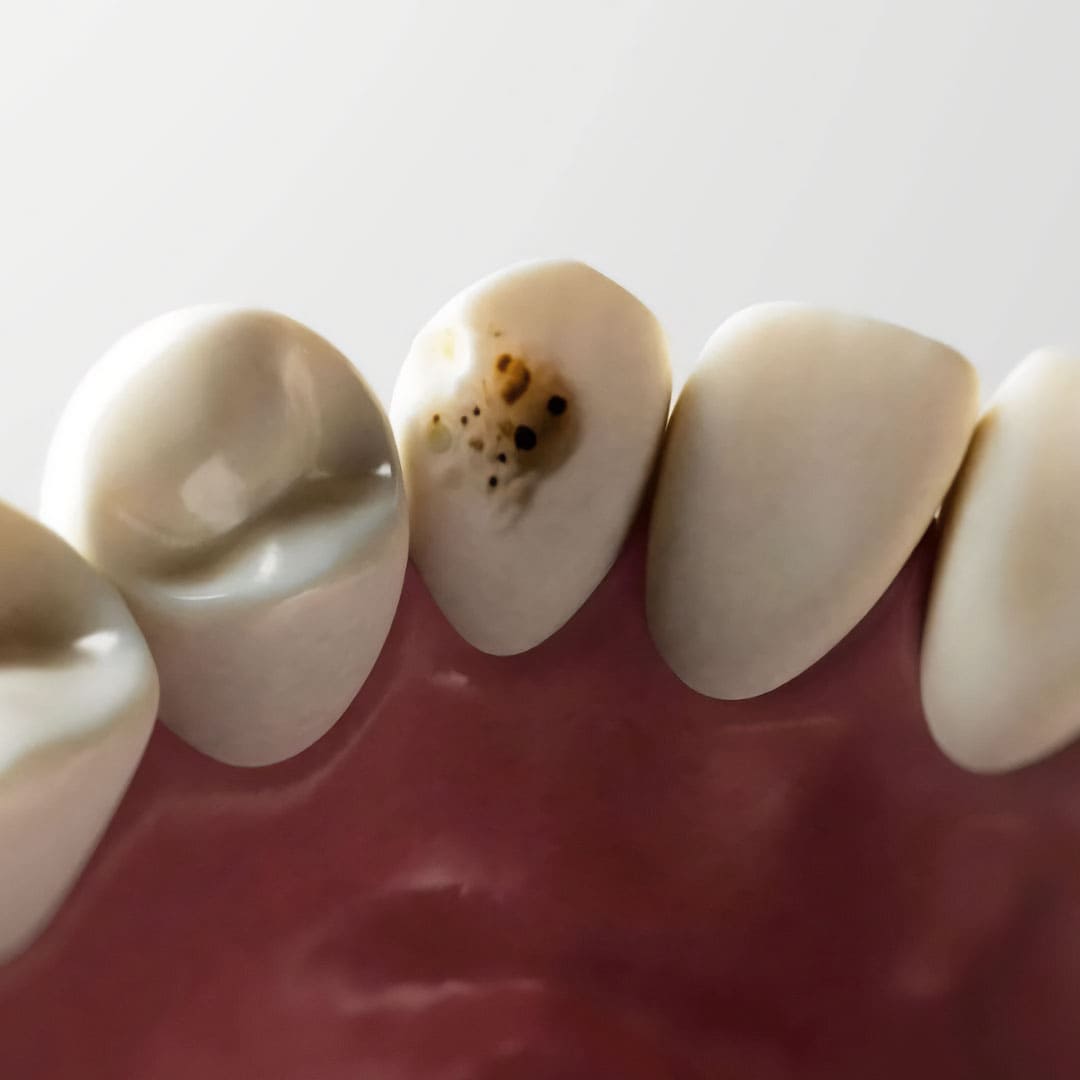
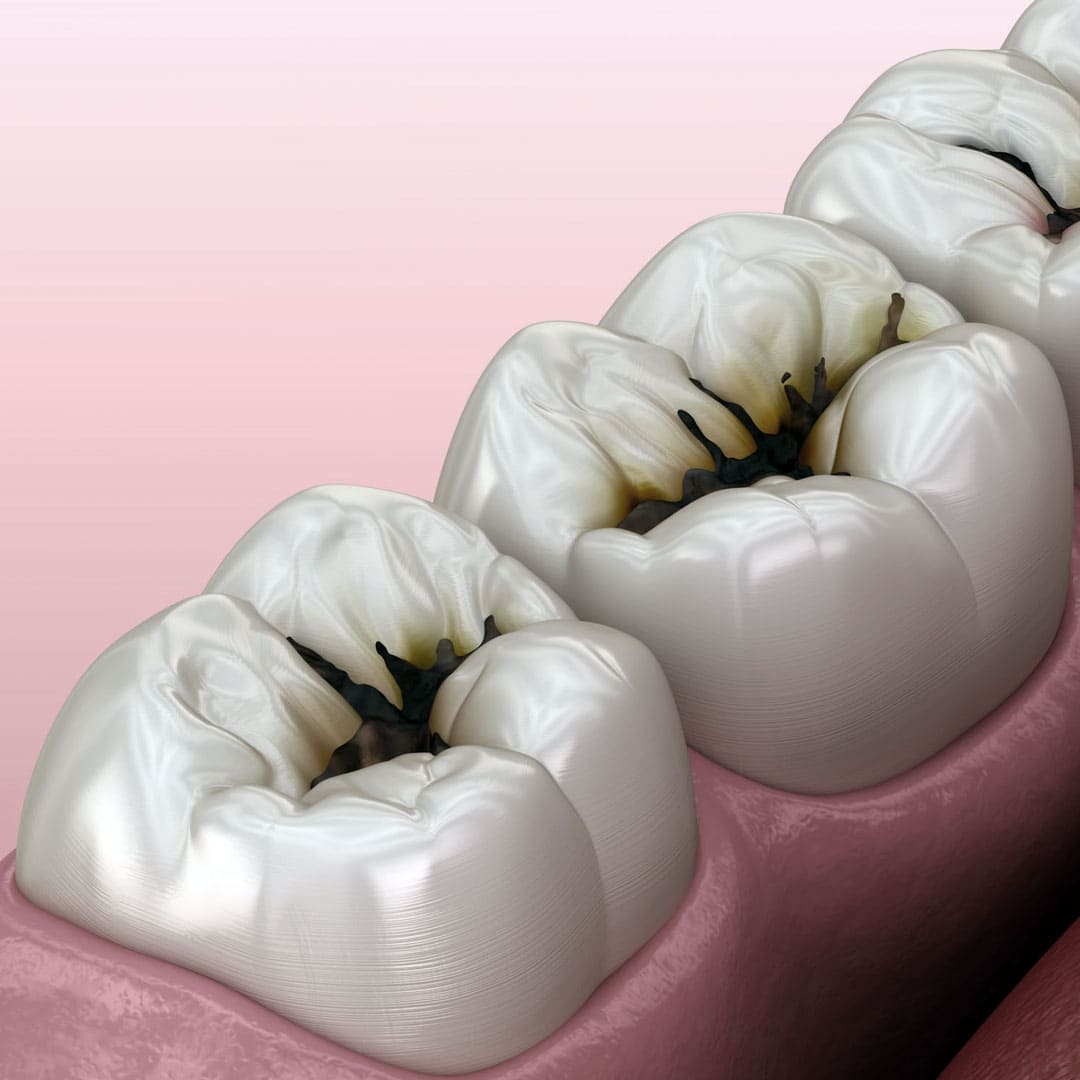
The Process of Tooth Decay
The stages of tooth decay involve a process from the outer surface of the tooth to the inside. The first of these is the small stains that appear on the teeth, that is, the stage when the enamel layer begins to be damaged. Enamel is the name of the solid and white layer on the outside of the tooth. However, bacteria that accumulate on the tooth and in the mouth soften the enamel layer over time, causing stains to form on this part.
The first stage of tooth decay is the stage where the enamel layer begins to soften and small stains appear. In the second stage, the decay begins to progress towards the dentin layer inside the tooth. Caries left untreated at this stage can progress to the pulp layer and from there to the nerves and blood vessels. Therefore, it is of great importance to treat the decay before it reaches a more advanced stage.
At the stage where the decay reaches the nerves, filling alone is not enough. At this stage, you may have to undergo root canal treatment and other dental treatments.
Why does tooth decay occur?
One of the most important causes of tooth decay is not brushing your teeth regularly. If you neglect flossing and consume too many sugary foods, you may also experience oral and dental health problems.
It is not only the lack of proper care that causes tooth decay. Tooth fractures caused by not getting enough protein during pregnancy, accidents or falls can also cause tooth decay. The main cause of tooth decay is damage to the outer layer and the penetration of bacteria.
How does tooth decay occur? Tooth decay is first caused by minor damage. Caries whose treatment is delayed starts to cause toothache. As the caries progresses, the healthy structure of the tooth gradually deteriorates and cavities appear on the tooth.
Symptoms of Tooth Decay
Unfortunately, the symptoms of tooth decay often start to show themselves when the decay is already advanced. If you brush your teeth regularly, you can maintain your dental health for many years with regular dental check-ups. Symptoms of tooth decay include:
- Dark colored stains on the teeth,
- Teeth aching,
- Toothache
- Sensitivity to sugary foods,
- There are various conditions such as sensitivity to hot and cold food and beverages.
If you are experiencing these symptoms, you should visit your dentist even if you are not sure that you have a cavity. Because sometimes, even if the teeth have not yet decayed, the sensitivity that occurs can make it very difficult for you to eat and drink. The sensitivity can cause your dental health to deteriorate and your teeth to decay over time.
Healthy enamel is not sensitive unless you consume extremely cold or hot drinks and foods. If you take proper oral care and get enough calcium, you can maintain healthy teeth and bone structure for many years.
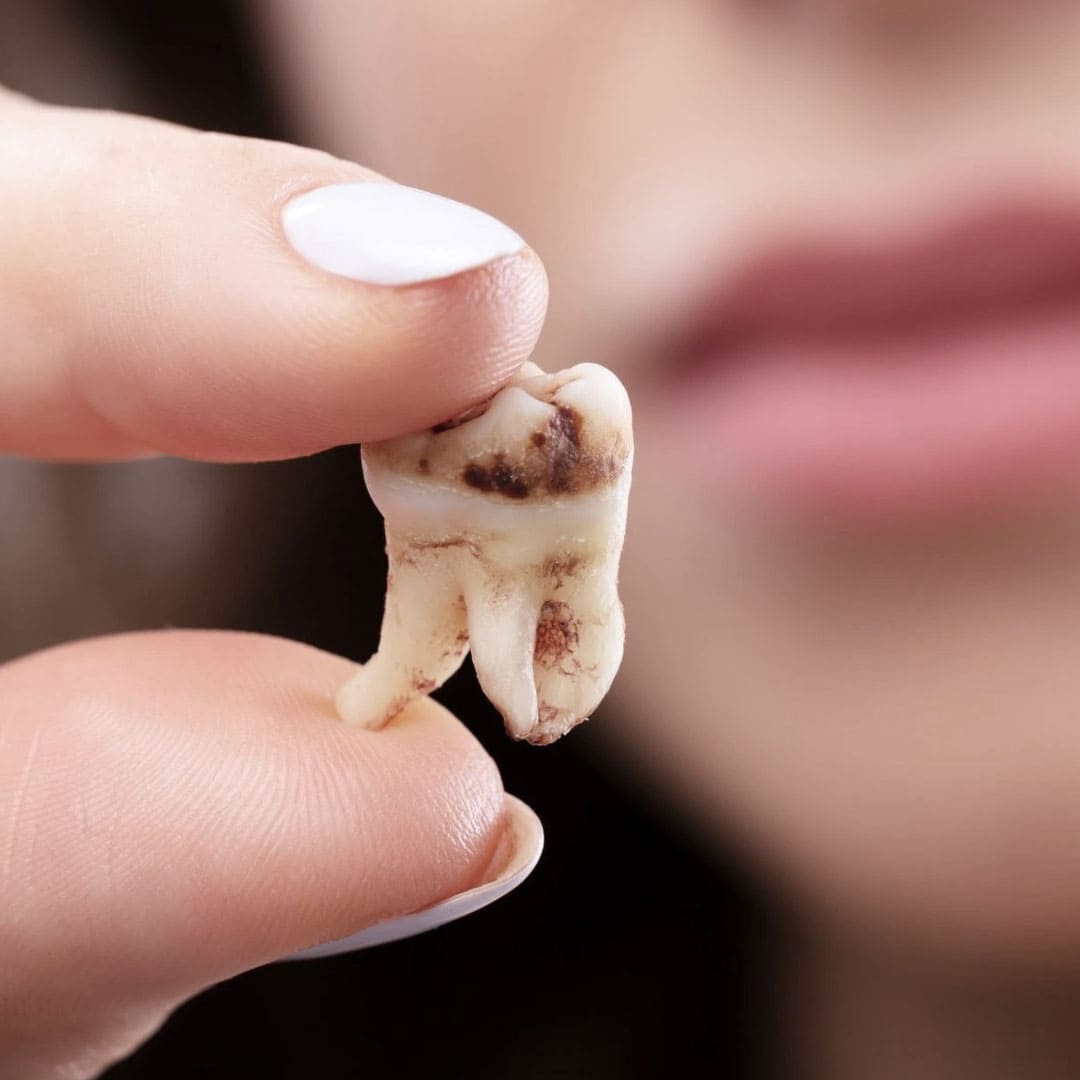

Methods to Prevent Tooth Decay
Do you usually visit the dentist when your teeth are decaying? In fact, one of the best ways to prevent cavities is to visit the dentist regularly every 6 months. Caries prevention methods for dental health:
- Brush your teeth twice a day,
- Flossing,
- Getting treatment as soon as possible for the oral and dental health problems you experience,
- Choose healthy foods and limit sugar consumption,
- Using effective toothpaste,
- Choosing the right hardness of toothbrush,
- If you have a special procedure in your mouth (dentures, implants, etc.), it can be listed as doing your care as recommended by your doctor.
You can prevent tooth decay by being sensitive about the causes of tooth decay. In addition to the oral care you do yourself, you can have a dental scaling every 6 months. Thus, you can get rid of tartar and plaque formations formed by residues accumulated in areas where the brush cannot reach.
Briefly, how to prevent tooth decay?
You should brush your teeth not only when you go out, but also after breakfast in the morning and before going to bed at night. In this way, you can help to keep bacteria in the mouth as low as possible. Make sure you choose a toothbrush with the right hardness and effectiveness, as recommended by your dentist. To reduce tooth staining, you should not overdo the consumption of tea and coffee. You should not consume acidic drinks.
Tooth decay in children
In children, decay of deciduous teeth may be underestimated because they will be replaced. However, decay in permanent teeth must be treated.
The easiest way to prevent tooth decay in children is to ensure that they gain the habit of brushing their teeth when they are young. You can contribute to your children’s healthier dentition by supporting a healthy diet from a young age.
In particular, you can protect the tooth structure by feeding them protein-rich foods instead of sugary foods. Instead of processed foods, preferring meals that you know every step of the process at home will also help you protect oral and dental health.
Tooth decay in children can be more annoying than in adults. Children are less resistant to pain than adults. They may be afraid of the needle anesthesia applied before the procedure.
Before intervening in oral and dental health problems in children, it is also important to prepare them psychologically for the procedure. For this reason, you should make sure that the doctor you choose is an expert who understands your child’s psychology.


Dental Caries Treatment Options
Tooth decay is something that almost everyone is familiar with. Treatment options for tooth decay usually involve cutting out the decayed area and filling it in. Thanks to this intervention, the decay does not progress further. After the procedure, you can return to normal eating and drinking when the numbness caused by anesthesia in the mouth has passed.
In caries treatment by filling and canal treatment, the decaying parts of the tooth are carved with special cutting equipment. Before this procedure, the dental nerve is numbed to prevent the patient from experiencing pain. If there is inflammation in the tooth beyond the decay, antibiotic treatment is performed before intervening in the decay.
After the inflammation dries up, the tooth is restored to a usable structure through filling or canal treatment. In addition, if the tooth has decayed too much and cannot bear the new application to be made on it, the tooth may be extracted. This is where implant treatment can come into play.
You can choose to have an implant so that there is no space in your mouth and you can eat more comfortably. The space left in the place of the extracted tooth may cause the adjacent teeth to shift towards this area.
Food residues can accumulate in the gaps opened in the mouth. Food residues that escape into this part can decay the teeth they come into contact with. For this reason, it may be more appropriate to replace the extracted tooth with an implant or bridge.
Everyone’s health problem is unique. For this reason, diseases should not be evaluated in general, but specific to the complaints experienced by the person.
You can contact OPC specialist dentists now for tooth decay and all other oral and dental health problems.
TREATMENTS
Book Your Appointment
For more information about Root Canal Treatment and other treatment options and to schedule an appointment, please click here. Contact us for a healthy and aesthetic smile.

